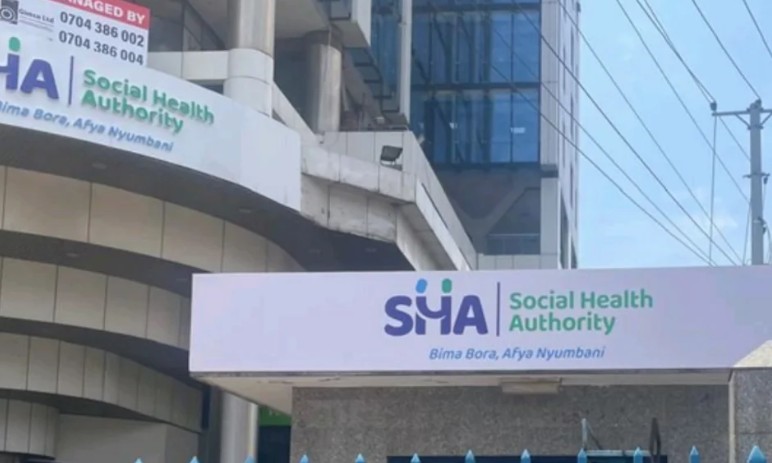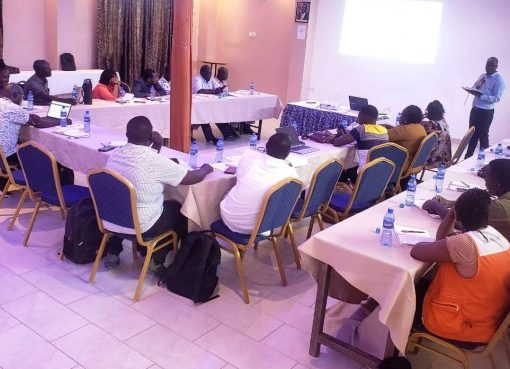The government remains committed to settling all legitimate National Hospital Insurance Fund debts, ensuring that healthcare providers remain financially stable as they transition into the Social Health Authority (SHA) framework.
However, to prevent recurrence, the Ministry is instituting stricter financial controls and enhanced oversight mechanisms in claims processing, guaranteeing accountability in the use of public funds.
In a media briefing, the Ministry of Health, in a statement, clarified that between 1st October 2024 to 31st December 2024, the Social Health Authority collected at least Sh20.9 billion as of 31st January 2025.
It further clarified that both public and private hospitals were paid claims amounting to Sh18.2 billion, out of which Sh16.97 were credited to SHIF payments, while the remaining Sh1.33 billion was disbursed to the facilities under the Primary Health Care capitation in the wider Taifa Care programme.
The ministry said the disbursement of Sh 18.2 billion underscores the government’s strong commitment to ensuring that healthcare providers receive timely reimbursements for services rendered.
By facilitating payments across both public and private health facilities, the government is safeguarding uninterrupted healthcare access for all Kenyans, reinforcing its dedication to achieving Universal Health Coverage (UHC) under Taifa Care.
“To enhance efficiency, SHA has prioritised faster claim processing through digital platforms that enable real-time tracking of claims and this innovation has significantly streamlined payment workflows, eliminating delays and inefficiencies that previously hindered reimbursements,” the statement said.
As a result, the Ministry says that healthcare providers can now operate with greater financial stability, ensuring continuous service delivery to patients.
The statement noted that despite the law prescribing a 90-day credit period for claim settlement, SHA has consistently processed and disbursed payments in under 30 days and this has accelerated turnaround reflects the government’s proactive approach to strengthening healthcare financing, reducing the financial strain on facilities, and improving the overall responsiveness of the health system.
“By maintaining a rapid and transparent payment system, SHA is building trust and confidence among healthcare providers, encouraging greater participation in the new health financing framework,” the statement further said.
The Ministry says that it will continue to work closely with stakeholders to further optimize payment processes, ensuring that no facility faces disruptions due to delayed reimbursements.
“Some claims remain pending due to incomplete documentation, ongoing verification processes, or preauthorization challenges and to resolve this, the Ministry is working closely with healthcare facilities to accelerate claim processing, ensuring that all valid payments are settled promptly,” the Ministry said.
The government has encouraged hospitals facing delays to engage with SHA for assistance in addressing submission issues and improving claim accuracy.
To enhance transparency and accountability, the ministry clarified that all claims are undergoing a clinical audit to confirm that preauthorized procedures were properly approved and performed before payments are processed, noting that this rigorous verification ensures that healthcare funds are disbursed appropriately, preventing fraud and improving financial integrity within the sector.
In addition to pending claims, the ministry confirmed that a number of submissions have been rejected due to documentation errors, duplicate entries, or missing authorizations.
“The Ministry urges healthcare providers to adhere strictly to SHA guidelines, ensuring that all claims are accurately documented and correctly submitted to avoid unnecessary delays and rejections,” the statement said.
To further improve efficiency and minimise claim rejections, the Ministry said that SHA is rolling out training programmes for hospital administrators on proper claim submission processes.
These efforts aim to streamline reimbursement procedures, enhance compliance, and ensure timely payments, ultimately strengthening service delivery under the Taifa Care model.
By working closely with stakeholders, including county governments and private providers, the Ministry has said it will continue to refine payment processes, ensuring that healthcare facilities receive timely reimbursements and that all Kenyans can access uninterrupted, high-quality healthcare services.
Hospitals and private healthcare providers are encouraged to collaborate with SHA in submitting verified records of pending NHIF payments and the verification process includes cross-checking patient records, confirming service provision dates, and ensuring that past claims meet the required financial and audit standards.
Through the Taifa Care model, the government aims to restore confidence in Kenya’s healthcare financing system by eliminating past inefficiencies, preventing undue financial burdens on hospitals, and ensuring a more robust and transparent reimbursement framework for SHIF moving forward.
By Wangari Ndirangu




